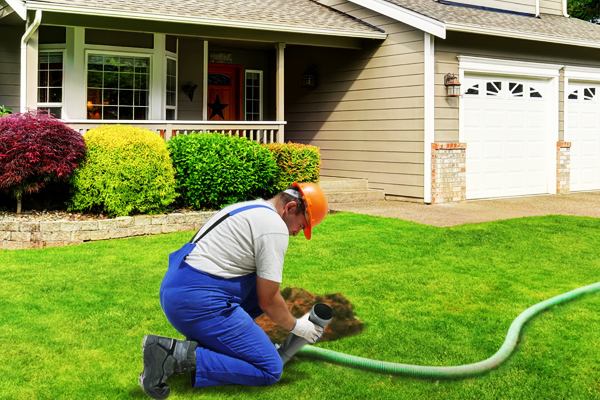Aerobic vs. Anaerobic Septic Systems
Read More
Schedule Online
919-446-4099

May 26, 2024
It is essential for any household that relies on a septic tank to maintain a healthy septic system. Although routine maintenance, including septic tank pumping and cleansing, is a standard procedure, it is crucial to be mindful of uncommon blockages that can result in substantial complications.
In this blog post, our professionals from Septic Blue of Raleigh will explore some of these unusual blockages and how to prevent them, ensuring your septic system remains in optimal condition.
Routine pumping is essential to prevent the accumulation of solids that can lead to blockages. Regular inspections and pumping services can be provided by a reputable septic company to ensure the seamless operation of your system. Regular maintenance not only prevents common blockages but also assists in the identification of unusual ones before they escalate into significant issues.
Foreign objects are responsible for one of the most prevalent yet uncommon obstructions in septic systems. Even those that are designated as flushable, such as diapers, sanitary linens, and wipes, can cause significant blockages. These items are difficult to decompose and can obstruct pipelines, necessitating septic tank repair. Preventing these issues can be achieved by educating household members on what should and should not be flushed.
Although grease and oils may appear harmless, they can accumulate and solidify in your septic tank over time. This can result in blockages that are difficult to identify until substantial harm has been sustained. To prevent this, refrain from pouring grease and oils down the toilet. Alternatively, place them in a container and discard them in the garbage. Furthermore, grease build-up can be reduced through routine septic tank cleaning.
Tree and shrub roots have the potential to penetrate septic tanks and pipelines in search of moisture. Severe obstructions and damage can result from these roots, necessitating repair or, in the event of extensive damage, septic tank installation. It is essential to exercise caution when planting trees and shrubs, ensuring that they are situated at a secure distance from your septic system. Contact a septic firm for an inspection if you suspect root intrusion.
The equilibrium of bacteria in your septic tank, which is essential for the breakdown of waste, can be disrupted by the use of harsh chemicals in your household. These beneficial microorganisms can be eliminated by cleaning products, paints, solvents, and other chemicals, which can result in inefficient waste breakdown and potential blockages. Opt for septic-safe cleaning products and dispose of chemicals properly, not down the drain.
Many pet owners may not be aware that disposing of pet waste in the bathroom can result in blockages. Pet waste often contains materials that are not easily broken down in a septic system, such as fur, bones, and litter. It's better to dispose of pet waste in the trash or compost it if appropriate.
By being aware of these unusual blockages and taking proactive steps, you can maintain a healthy septic system. Consistent cleaning and pumping, in conjunction with responsible domestic practices, will guarantee that your septic system functions effectively for years to come. If you encounter any problems, do not hesitate to seek the help of a professional septic company for advice on repair or installation. Maintaining the optimal condition of your septic system safeguards both your residence and the environment.